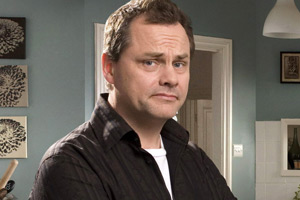Pete Sinclair interview
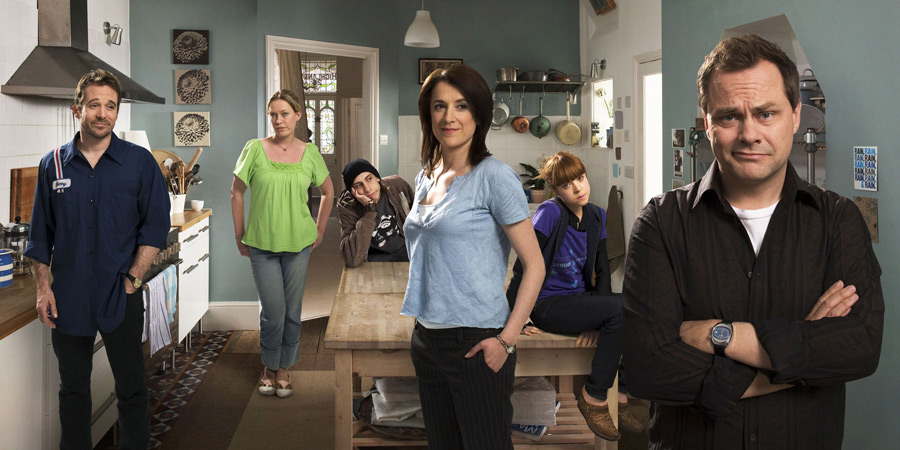
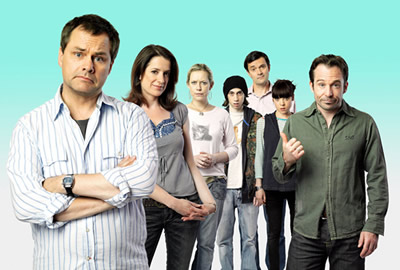
In this interview we talk at length with the very friendly Pete Sinclair, who co-writes Lead Balloon with Jack Dee...
Hi Pete. Thanks very much for talking to us...
No problem. I'm always delighted when someone interviews a writer, because it's normally just the on-screen talent that people want to hear from.
Well, we at British Comedy Guide think good-writing is key to a comedy's success, something which is so often over-looked, so it really is a pleasure to talk to you...
Well, I suppose you're right because if you don't have a good script then you're really struggling. But I think it was someone like David Renwick who said, for a sitcom to succeed you need a good script, a good cast, a good director, a good everything really... and then you still need something. You need a bit of magic. I think that's the truth, you can have all the successful elements and it still doesn't quite gel.
You know, when something like Lead Balloon does work you just feel so relieved. You think, 'God, I really didn't know - I didn't know for definite'. It's not till you've cast all the right people and they've gelled together, that you can begin to think, 'yeah, this might just work'.
As you say, sitcoms are notoriously difficult to get right, so congratulations on the continuing success of Lead Balloon
Thank you. It's certainly something to get to series three. It feels good. As you know, so much goes into devising a sitcom, getting it commissioned, doing it... it can all just go up in smoke, crash and burn, and everyone goes 'God, whoever thought that was funny? Why did they do that?'. Meanwhile you're thinking, 'well, it's harder than in looks'.
I think once you've done a sitcom you become a lot more sympathetic to other sitcoms, even ones you personally don't like.
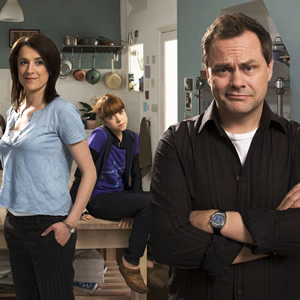
It's a good point, although there's perhaps a couple of BBC Three sitcoms that sympathy should not apply to! Ha ha
I think I know the ones you mean, but I do honestly think that's why BBC Three and BBC Four are so brilliant because, in a way, they do provide you with a safe place to fail. That's why we started Lead Balloon on BBC Four. Loads of people said: 'Why? With a name like Jack Dee you could do it BBC One or BBC Two'. But we deliberately felt the minute you put it on BBC One or BBC Two, there's then a huge expectation and the critics are possibly gunning for it.
So we thought, actually if we put it on BBC Four and everyone knows this is something we're doing because we believe in it - particularly for Jack, he wouldn't be doing it on BBC Four unless it was really something he believed in. Plus, some things don't work, but on BBC Four they can quietly die a death out the way of the mainstream. But sometimes, as fortunately happened with Lead Balloon, it kind of does work and people go 'oh, wow, what about transferring it to BBC Two?'. At which point, once you know its basically right, you can go 'yes please, thank you'.
Interesting stuff. We didn't realise you deliberately aimed the first series at BBC Four. Talking of the switch to BBC Two, in the case of Lead Balloon, the transfer came in record time?
Yeah, it genuinely was aimed at BBC Four. We fully expected the first series would just go out on BBC Four and then maybe get a repeat on BBC Two but, in fact, because it got great viewing figures and everything, they started to repeat it mid-run on BBC Two before the first series had even finished! So it certainly moved quicker than we ever expected.
I do think it's fantastic to have that kind of opportunity on channels like BBC Four and BBC Three. The right to fail, and the right to get it wrong. It's the digital channels that allow people to take risks. Sometimes you end up with a hit which maybe, if you had to play safe, wouldn't have been made in the first place.
Absolutely agree with you there Pete. So looking back a bit, how did you first meet Jack?
The first time I actually worked with him properly was on his TV series Jack Dee's Happy Hour. Which... God knows, how many years ago was that now?
About the start of the decade?
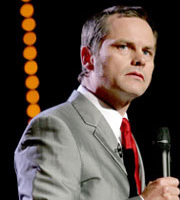
Yeah, must be getting on for ten years now. Myself and about three others wrote with him on that. I then worked with him on Live At The Apollo when he hosted that. I think it was some of the stuff for his live set that was the first time I worked with him just on my own. That was probably just a year or so before Lead Balloon. In the past I'd just worked as part of a team of writers, but this time I remember myself and Jack did some writing sessions together and we just seemed to hit it off.
Shortly after that he said to me, 'I'm thinking of doing this sitcom, I've got a couple of sides of paper, what do you reckon?' I read the basic two page idea and thought 'yeah, this sounds brilliant' and, of course, when Jack Dee asks you if you'd like to write a sitcom with him, it's a rather easy answer anyway!
Although you've done a couple of sitcoms in the past Pete, predominantly your work up until Lead Balloon was with topical shows?
Absolutely. Certainly my bread and butter work has always been either topical sketch shows, like Spitting Image, or panel shows like They Think It's All Over and then Never Mind The Buzzcocks and Have I Got News For You, which I'm still doing. But, like most writers, my dream was to get my own sitcom off the ground and, well I refer you to what I said earlier about how bloody hard that is to do.
Well, you've certainly got a hit on your hands this time! Often they say that to write the best comedy, you should write about the things you know. So we're wondering, how much of Lead Balloon is based on real events?
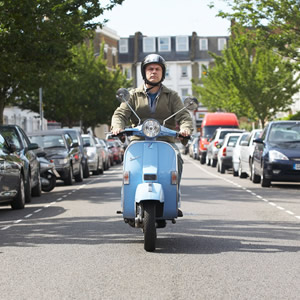
I think you're absolutely right. There are scenes in Lead Balloon that have come from real-life, particularly Jack's life because he has obviously been through the whole corporate stand-up thing.
To give a real example of something that's come from my life: the episode where Rick invites a builder round in series two, and the builder thinks Rick is the head of ITV drama - that came from a real thing where I, ha ha, this is embarrassing... I was doing a musical and it got nominated for an award, and I phoned who I thought was Carol our director and left a message on her answer phone along the lines of 'well done us. aren't we brilliant?!'... but it turns out I'd left it on the answer phone of a friend who was also called Carol but who didn't have anything to do with the musical. It sounded like I was boasting so much. That got us thinking 'wouldn't that be a dreadful situation if you'd got the wrong person and thus got into a situation where you are thinking: I didn't mean you, I meant the other one'.
Certainly when anything excruciating happens to me or Jack it now gets noted down as a potential situation to put Rick in.
The first Lead Balloon episode that went out (the one where Rick appeared in a recycling campaign advert but got caught out not recycling himself) was, to be honest, based on something that happened to another comedian. Do you remember when poor old Alistair McGowan got in the papers for fronting an advertising campaign about identify theft - and the bastards raked through his bins and found he hadn't been shredding his own credit card statements? That gave us the idea for that episode.
You don't have to name names if it's true Pete, but is Michael based on anyone? It's a bit worrying if he is!
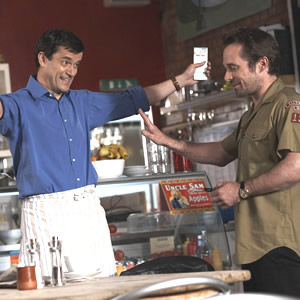
Well, there was one line in the last series where he said 'I don't do ill', and my dad actually said to me, 'that's something I say'. I thought... 'well draw your own conclusions dad'... ha ha. But no, he isn't based on any one person, although both Jack and I relate to his neurosis.
I suppose the truth is, both myself and Jack do have extreme sides of our own behaviour which if un-checked could easily take us down that Michael route. I guess the thing is that normal social convention means you don't follow those through, but the lovely thing is once you do get a character like Michael who can be so extreme, you can then explore that 'what if he just came out and said all that stuff' avenue of comedy.
How do you and Jack write the show? And is there any similarity between your writing relationship and that of Rick and Marty?
In terms of Marty and Rick, Jack always said the thing that fascinated him was the relationship between writers and performers, and certainly on shows like Never Mind The Buzzcocks the relationship in the writing room can be so cruel. You're so nasty to each other, you just do say anything to each other, however appalling and shocking and yet no offense is taken because you're trying to just do it in a gag way.
I think the explanation for creating this atmosphere in the writing room is because it is very embarrassing to tell jokes in front of people in a room - you're effectively saying 'I think this is funny'. So if everyone's poking fun at each other, the nervousness of suggesting a gag that isn't funny becomes the least of your worries and so everyone becomes happy to throw in suggestions!
When people say 'is Marty based on you?', I go: 'yeah he's American, he's cool, he's got a full head of hair... it's definitely me!'. However, I haven't got a full head of hair, I'm not cool, and I'm not American so it's definitely not mine and Jack's relationship being portrayed.
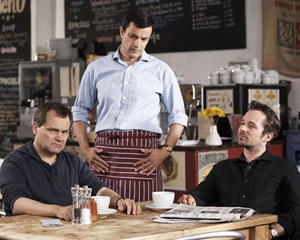
Jack and I now have quite a tried and tested way of working when we write Lead Balloon. Between us we'll kick around ideas and then we'll alight on a central storyline. We'll then work between us fleshing out all the different sub-plots and we then beef up those storylines. We try and have quite a few different plots running through the episode and so we get them up on different coloured PostIt notes. This is the bit I really love: mixing them up on the board going 'what if we went to this scene, then that one?'
Once all the scenes are then in order, we go through and flesh out each scene so we probably arrive at a six to eight page document which has got a pretty good scene-by-scene breakdown with the main gags and certainly the comic thrust behind each scene.
At that stage, what we've found works really well for us is Jack goes off and writes the first draft of all the scenes (two or three at a time) and then he'll send them over to me and I'll read them and make notes. We'll then meet up again and re-write the scenes and go through them together and everything like that.
Sometimes, to be honest, the bastard gets it almost perfect first time. For example, I have to admit, the dry cleaners scene (which I think is a real classic, it's the one from the first series with Omid Djalili in it), I didn't change very much in that at all. Jack's version of it came in really, really brilliant.
I think this method we've come up with really works well and I just wish I had discovered the process before. The difficult thing is, if you're both sitting there going 'who should speak first, Rick or Marty'... there's no real correct answer, but you'll argue over it, wasting time, when actually it'd be better to say 'one of you just go off and make the decision and blast it out' - most of the time that'd work perfectly and then it's only when you think it's not working you have to take time analysing it.
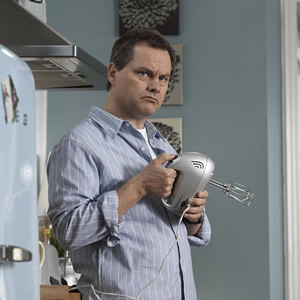
I find a blank page a lot scarier than Jack does. Jack's attitude is: 'ok fine, I'll just blast away', whereas I'm much more into re-writing, honing and perfecting. So if it was left to me, I would write the first sentence and then I'd re-write it five times. It takes me forever to start from scratch. So he's much happier to blast out the first draft, and then I enjoy the tinkering process.
So how long does it take you to write a series? And has it got quicker as the series had progressed?
Well, to be honest, it had to get quicker this time, simply because of time scales and things like that. Generally speaking I think we've now got it to a point where from the start to finish of an episode it's about three weeks to get it to a stage where we can take the script to the rehearsal process.
But then there's still a fair amount of changes that happen during the rehearsal phase. Not so much to the structure, but to each scene. This is because the cast now know their characters so well that they will say... 'I don't know why I'm saying that' if something doesn't seem right to them.
That means when we arrive on set we're pretty confident that all the scenes are working as they should be and, the lovely thing is, they're all such skilled actors that it sounds as if they're improvising when, in fact, by this stage it's pretty much written word-for-word. It's very, very rare that anything is actually improvised on set, it's more that that has happened in the rehearsal process and then been incorporated into the script.
One of the reasons we at British Comedy Guide like Lead Balloon so much is that, just like Fawlty Towers, you manage to expertly weave together all the seemingly un-connected plot strands at the end of each episode into a satisfying ending.
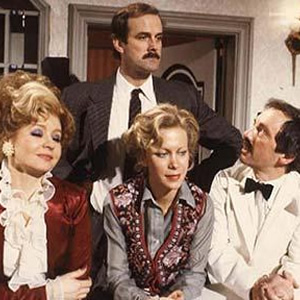
Thank you for the praise. Fawlty Towers is probably still the sitcom that makes me laugh the most. It is a difficult thing to knit together the plot strands and threads - someone, I think it might have been John Lloyd, actually said he blames Fawlty Towers for a lot of the British sitcoms before the last decade being quite bad, in the sense that everyone was so determined that they must be able to write a farce, and they must be able to get misunderstandings in and all that sort of thing that they forgot about characters, believability and gags.
It was such genius that Fawlty Towers managed to pull it all off. It is so bloody hard. I think that's why, particularly if you're aiming at a studio audience, if it falls on its face, it falls so heavily. With something like Lead Balloon you're at least in the zone that everyone is acting believably, so it doesn't seem quite so much like you're struggling towards making plots work together and finding a way to make the misunderstandings happen.
You've mentioned Fawlty Towers, but we'd be interested to know what other comedies you like Pete...
In terms of the past, I love all the sitcoms like Porridge, The Likely Lads and Dad's Army. So I grew up loving those kind of shows. Another classic for me was Father Ted. That was fantastic - it just blew me away, because it was so silly and so un-expected. And then of course there was The Office which, again, completely changed the rules, because that was really the first to do that non-audience thing. Actually, I always say that, but then when I think about it The Royle Family was before The Office and that was very much done in that very real, 'people sitting around and no laughter' format. They're both brilliant shows though.
Those are a smattering of the things I've enjoyed. Oh, of course there's also The Simpsons. Who can leave that out of their list? I think most writers would say in some ways that's just about the best sitcom there's been. Even though there are about 1000 characters they've managed to write everyone really believably. To be honest, The Simpsons was one of the things where, at its best, I would just sit there and put my hands up and think 'I don't think I could ever, ever do this'. 23 minutes of gags packed so thick and fast and such brilliant plotting!
Thanks for your time Pete. That's a good list there. Cheers again for talking to us and for providing a great insight into sitcom writing and the production of Lead Balloon!
Not at all, it was a pleasure. I still enjoy comedy and I'm fascinated by it so it's always a pleasure to get a chance to chat about it. I do genuinely check out your forums as I think it's fascinating to see what people think of new shows (and old ones!). To be honest, I think in a lot of cases, there's far more perceptive criticism and praise to be found on internet message boards like BCG than there is in the papers.
So I'm always fascinated, because that's what makes making comedy exciting isn't it... you just really can't tell whether a new comedy will go down well with audiences until you've made it.
Thanks again to Pete Sinclair for the above. We talked in some depth to Pete about sitcom writing, in the process discovering what he learnt during the process of co-writing All Along The Watchtower and Mr Charity. This can be found in our 'Make It' area.

